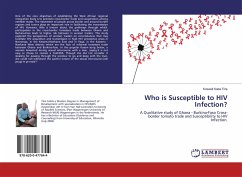
Failure to thrive
Versandkostenfrei!
Versandfertig in 1-2 Wochen
26,99 €
inkl. MwSt.

PAYBACK Punkte
13 °P sammeln!
In this book, failure to thrive (FTT) refers to failure to gain weight at an appropriate rate, resulting in the child appearing thin. Failure to thrive has been variously defined with each definition having its pitfalls. Some healthy infants may satisfy existing definitions of FTT but they represent normal variants of growth. FTT is common but its incidence in general population is not known with certainty. It is more common in developing than developed countries. Pathophysiologically, FTT results from any or a combination of the following mechanisms (i) inadequate caloric intake (ii) inadequa...
In this book, failure to thrive (FTT) refers to failure to gain weight at an appropriate rate, resulting in the child appearing thin. Failure to thrive has been variously defined with each definition having its pitfalls. Some healthy infants may satisfy existing definitions of FTT but they represent normal variants of growth. FTT is common but its incidence in general population is not known with certainty. It is more common in developing than developed countries. Pathophysiologically, FTT results from any or a combination of the following mechanisms (i) inadequate caloric intake (ii) inadequate absorption of consumed calories (iii) excessive metabolic requirements (iv) defective utilization of consumed calories and (v) reduced growth potential. Evaluation of a child with FTT requires (i) a thorough history, including itemized psychosocial review; (ii) a careful detailed physical examination, including determination of auxological parameters; and (iii) a directed observation of the child's behaviour and of parent-child interaction.












